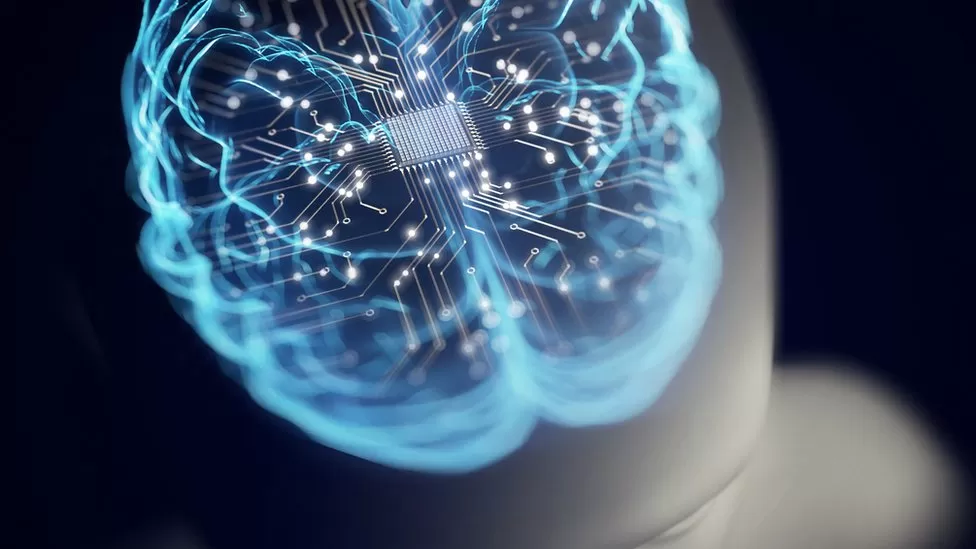AI: ‘Brain-like’ chip make artificial intelligence more energy efficient

AI (artificial intelligence) may become more energy efficient with the development of a prototype “brain-like” chip, according to technology giant IBM.
There have been concerns raised about the emissions emitted by warehouses filled with computers that power AI systems.
This prototype could lead to more efficient, less battery-draining AI chips for smartphones, IBM said.
Several components in the device work in the same way as connections in the human brain, the company claims.
Scientist Thanos Vasilopoulos, from IBM’s Zurich, Switzerland research lab, says the human brain is capable of performing remarkable computations while using little power.
A superior energy efficiency would allow large and complex workloads to be executed in low power or battery-constrained environments, such as cars, mobile phones and cameras.
In addition, cloud providers will be able to reduce their energy costs and carbon footprint with these chips.
In contrast to conventional chips, which store information in 0s and 1s, the new chip uses analogue components called memristors [memory resistors], which can store a wide range of numbers.
It’s like the difference between a light switch and a dimmer switch when you compare digital and analog.
In the same way that synapses in the brain function, memristors work analogously.
According to Ferrante Neri, from the University of Surrey, memristors belong to the category of nature-inspired computing.
In a similar way to a synapse in a biological system, a memristor can remember its electrical history.
“Memristors can be connected to form a network that resembles a biological brain,” he said.
As a result of these advancements, he is cautiously optimistic about the future of chips that use this technology: “We may be on the cusp of seeing the emergence of brain-like chips in the near future.”
In spite of this, he warned that the development of memristor-based computers is not an easy task, and that a number of challenges are ahead, including the cost of materials and manufacturing difficulties.
These components make the new chip more energy-efficient, but it also contains digital elements.
As a result, existing AI systems can use the chip more easily.
These days, many phones have artificial intelligence chips that help them process photos, for example. An iPhone, for instance, has a “neural engine” chip.
Chips in phones and cars could be more efficient in the future, extending battery life and enabling new applications. IBM hopes these chips will be available in the near future.
By replacing the chips in the banks of computers powering advanced AI systems, chips like IBM’s prototype may help save lots of energy.
The University of Bath’s James Davenport said IBM’s findings were “potentially interesting” but cautioned that the chip was not an easy solution to the problem, but rather “a possible first step”.
